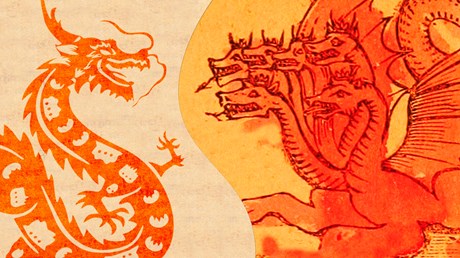Their culture tells them the dragon is transcendent. Their Bibles tell them it’s evil. How should Chinese Christians approach this year’s zodiac animal?

The Chinese zodiac marks 2024 as the Year of the Dragon (龙, long). Every 12 years, numerous Chinese families harbor hopes of welcoming a “dragon baby”—because for thousands of years, Chinese culture has held the dragon in high esteem, and many Chinese people identify themselves as “descendants of the dragon” (龙的传人).
However, numerous misunderstandings and fears about the dragon exist among many Chinese Christians, because they believe the Bible regards the creature as satanic. For them, the imaginary creature is either a symbol of nationalism or the Devil incarnate.
This Year of the Dragon, believers would do well to ask: What might it look like for the gospel to transcend Chinese dragon culture? And what would it mean for Chinese believers to transition from identifying as descendants of the dragon to heirs of God?
Not St. George’s dragon
My surname is Long (龙), which means “dragon.” After my conversion to Christianity, numerous Christians advised me to change my surname because it is the same word as dragon in Chinese Bible translations, and Revelation 12:9 states that the dragon is Satan. While these Christians may have been trying to keep me from associating with the Evil One, I found their interpretation to be an oversimplification and a misunderstanding of both the Bible and Chinese culture.
In the first place, there are significant differences between the dragons in Chinese culture and the dragons in Western culture and the Bible (Greek: drakōn), starting with their appearance. The “enormous red dragon” in Revelation possesses “seven heads and ten horns” (Rev. 12:3), whereas the Chinese dragon only has one head and two horns. And Western dragons have ...
from Christianity Today Magazine
Umn ministry




.gif)

.gif)
.gif)
